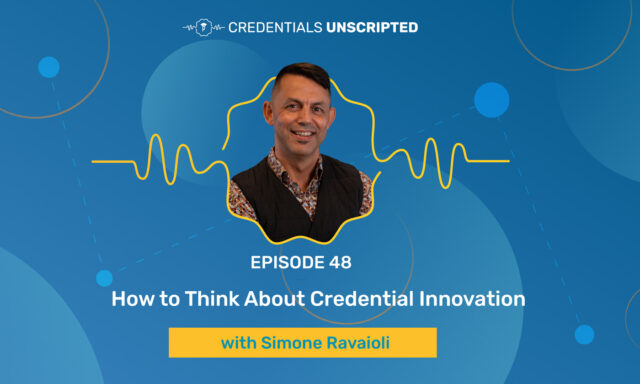
Higher Ed
How to Think About Credential Innovation

How amazing would it be to have had a teacher like Valerie Felicity Frizzle – aka Ms. Frizzle, aka The Frizz, from “The Magic School Bus?” The eccentric, intelligent educator is infamous for her wacky outfits and even wackier field trips, taking her students through space, circulatory systems, animal habitats and more.
No doubt Ms. Frizzle’s students got an unparalleled educational experience, learning facts and concepts they would never have understood otherwise. But when it comes time to apply for college, how will Frizzle’s students prove what they know? How will Janet, who collected proof of the class’s trip to the solar system, verify that the rocks she grabbed are indeed from each of the planets? How will Arnold prove his community service as part of the “Leave-The-Log-As-It-Is” club?
This metaphor applies to your own students who participate in nontraditional education experiences, such as internships, field trips, study abroad and community service. These experiences are great for enhancing a student’s college applications. Not only are the details sometimes hard to remember, but students need to be able to verify that they actually participated in these events.
We all know this, but it bears repeating: Colleges want more from prospective students than good grades. Records that show a well-rounded academic and personal life are better for helping students get accepted – even if they have a few low grades affecting their GPAs. That’s partially why so many students participate in extracurricular activities like sports, internships and volunteer work.
Unfortunately, most of these activities aren’t included in official academic records, forcing students to remember the intricate details when it comes time to apply for college. This is problematic – how can a high school senior remember the exact number of hours she spent volunteering as a freshman? If the school she applies for discovers a discrepancy between her claims and those of the nonprofit she worked with, she could be accused of falsifying her application and have her offer revoked, regardless of whether or not she meant to lie.
*PRO TIP: You can also turn your field trips into a great personal statement topic!
K-12 schools can help students avoid this potential catastrophe by using Parchment’s credential management system. We do more than make digital versions of diplomas and report cards; our partnership with intelliVOL gives students and schools in our network access to x2VOL’s Official Service Transcript, which digitally tracks and verifies student community service hours.
Your school can further support its students with Parchment Send, which gives them access to letters of recommendation (for a student’s bravery during a trip to Pluto, for example), immunization records (after traveling inside a sick friend and learning about white blood cells), and miscellaneous attachments (to account for the dozens of other science-bending field trips).
One great thing about ‘The Magic School Bus” and its reboot is that the program shows how learning can be a lifelong process. Although the children of the series are still in school, their field trips aren’t part of the conventional curriculum. Far from it – these trips are extraordinary but still help students reinforce concepts they learn in the classroom. In this way, these stories show children and adults that the world around us can be more educational than any classroom.
Parchment believes in these experiences, and we think students should be able to refer to them to as they need. With Parchment Send and intelliVOL, we give students access to all the credentials that will help them succeed, not just their grades.
Learn more about how Parchment helps learners make the most of their education.
